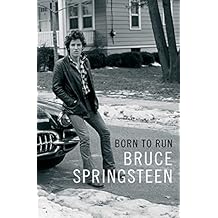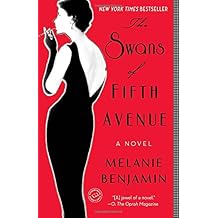
Springsteen wrote the songs for The Tunnel of Love album while dealing with his own divorce. Unless you've been through it you cannot imagine the feelings of inadequacy and failure that consume you. Almost forty years and unimaginable happiness later, he manages to describe those times so deftly, so poignantly, that the self-doubt is palpable. That's what a poet does.
"Born to Run" is a flat out amazing memoir. Even if you've never listened to a single one of The Boss's songs, you can appreciate it for the thoughtful, straight from the gut piece of literature that it is. Beautifully written, eerily evocative of the five decades covered, it's up there for me with Patti Smith's "Just Kids," and Harry Belafonte's "My Song," as a testament to hope, ambition, luck, and talent in equal measure.
Bruce does not shy away from the fact that it's taken forty years of hard work in therapy to reach the place of equanimity from which he now writes. Blessed with the genetic mess of the Irish/Italian family tree, the poverty of his childhood, the overpowering grandma who did battle with his mother for his soul, and the influence of the Catholic Church on the corner, he had plenty to contend with.
Add to that the manic-depressive father who wasn't diagnosed or helped until he was in his sixties and it should be no surprise that The Boss had issues. What is surprising is how eloquently he deals with this in his book, interspersing family life with the music life in perfect doses so that one never overtakes the other.
Eschewing college for the guitar, loaded with ambition and angst, left behind in New Jersey at the age of seventeen when his folks moved to California to try to improve their lot, he avoided the draft (a very funny chapter) and set out to become famous. The friends he made on the road are still in his life, a remarkable feat for a peripatetic, egotistic troubadour. And then there's the E-street band, together still.
A self-taught and extremely well-read man, Springsteen is a loner, a very interior person. Always cogitating on the human condition, he wrote music that reflected the times and slowly became quite political. I always got chills when I heard War, and I loved reading about the serendipity of the story behind the song, how he was reading "Born on the Fourth of July" when he met the author Ron Kovic at a rundown motel where they were both staying. Then, of course, there was the haunting Streets of Philadelphia, written for the Tom Hanks/Denzel Washington movie about AIDS in the city of brotherly love.
But it wasn't until American Skin, a gut-wrenching ballad about the police attack on Amadou Diallo, (http://bit.ly/1UPGBLg) that Bruce managed to really stir up some controversy, garnering his first boos at a performance, yet soon forgiven with The Rising which he wrote in the aftermath of 9/11.
And then there's Patti. Lover, singer, musician, wife, mother. I can't do her justice, but he does. I've never read such a lyrical, poetic description of childbirth from the father's perspective. Needless to say, this is no celebrity tell-all, no gossip infused blather. This is a deeply personal memoir of musical history, family, struggle, faith and the America we all hope we'll one day live in.
Listen to the book if you can, there's nothing like hearing Bruce read his own words.



